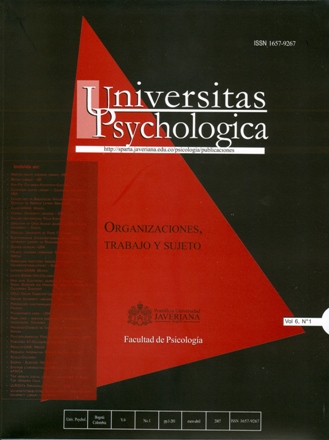Abstract
En este texto defendemos una concepción de los sujetos discursiva cuya subjetividad es fragmentaria. Significa cuestionar una concepción de subjetividad como un dato fijo, unitario, permanente y coherente, ajeno a las condiciones y formas en que participamos en las actividades productivas. Entendemos que las interacciones sociales que producen a los sujetos son discursivas. De esas interacciones nosotros nos fijamos en las relaciones de producción capitalista patriarcales. Esto significa prestar atención a la forma en que se constituye la subjetividad en un contexto caracterizado por relaciones de explotación y de dominación, que circunscribimos al ámbito de las actividades productivas, que dan lugar a las clases sociales. Por ello centramos nuestra propuesta de análisis en la subjetividad fragmentaria y performativa que se produce en las relaciones de clase. Señalamos cómo este enfoque afecta al sujeto en tanto objeto para sí, a la definición del otro generalizado, a la dimensión emocional y, finalmente, a la configuración de subjetividades de clase colectivasThis journal is registered under a Creative Commons Attribution 4.0 International Public License. Thus, this work may be reproduced, distributed, and publicly shared in digital format, as long as the names of the authors and Pontificia Universidad Javeriana are acknowledged. Others are allowed to quote, adapt, transform, auto-archive, republish, and create based on this material, for any purpose (even commercial ones), provided the authorship is duly acknowledged, a link to the original work is provided, and it is specified if changes have been made. Pontificia Universidad Javeriana does not hold the rights of published works and the authors are solely responsible for the contents of their works; they keep the moral, intellectual, privacy, and publicity rights. Approving the intervention of the work (review, copy-editing, translation, layout) and the following outreach, are granted through an use license and not through an assignment of rights. This means the journal and Pontificia Universidad Javeriana cannot be held responsible for any ethical malpractice by the authors. As a consequence of the protection granted by the use license, the journal is not required to publish recantations or modify information already published, unless the errata stems from the editorial management process. Publishing contents in this journal does not generate royalties for contributors.


